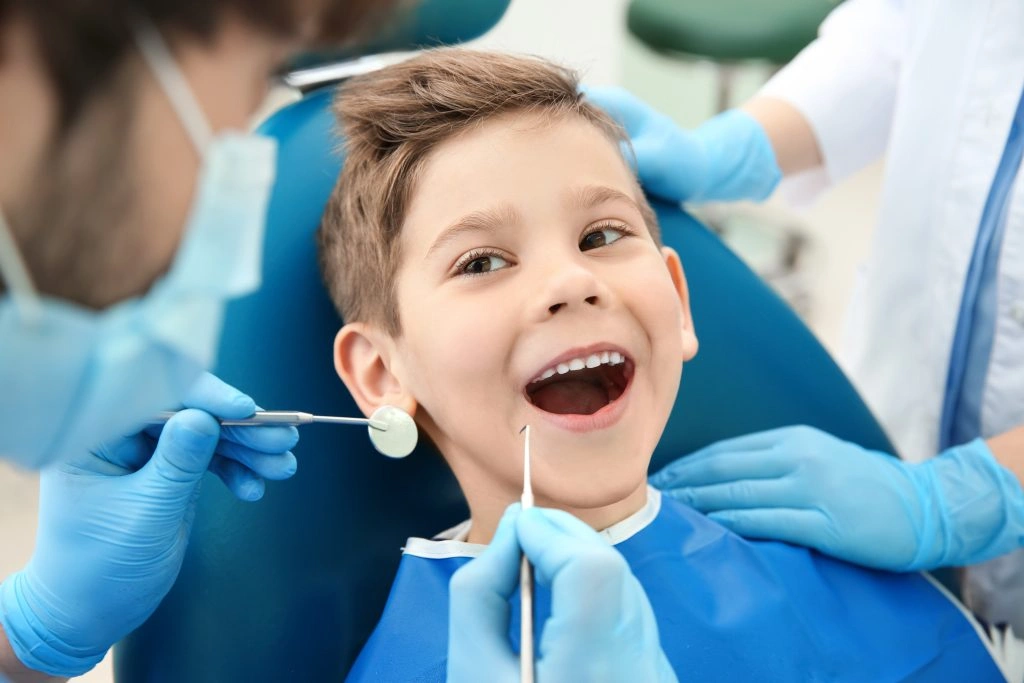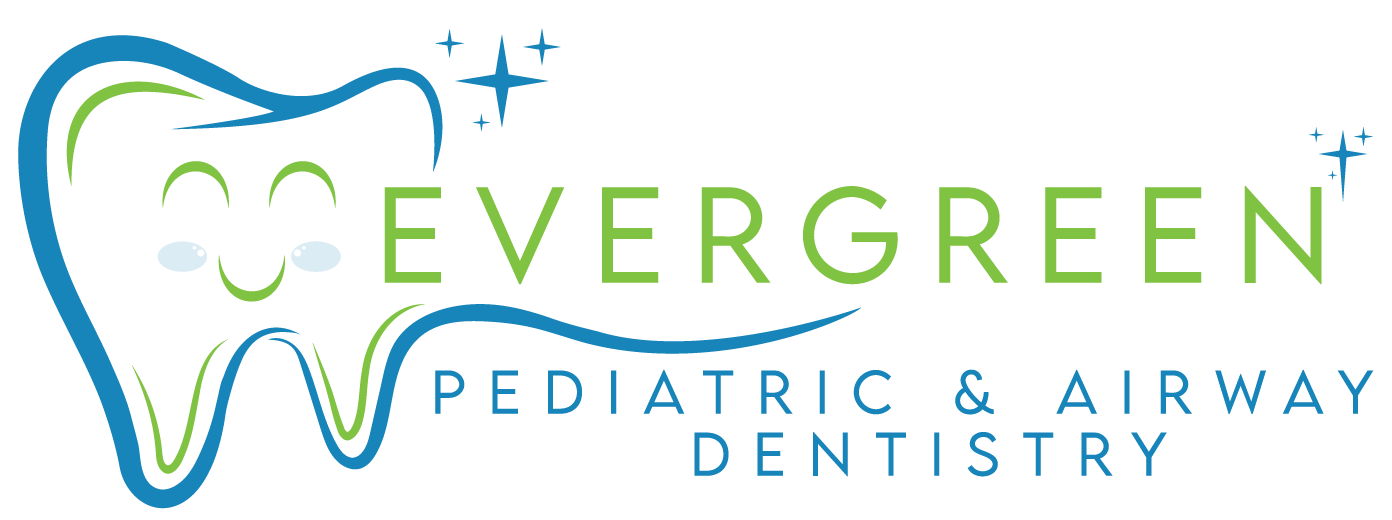The Role of Pediatric Dentists in Preventing Childhood Tooth Decay
Imagine a playground full of giggles and grins, interrupted by a child suddenly clutching their jaw in pain. As surprising as it sounds, tooth decay is not only a pervasive issue in childhood but is also five times more common than asthma. Left unchecked, it can lead to severe pain, and infection, and even impact a child’s ability to eat and speak properly. The role of pediatric dentists in preventing childhood tooth decay—an unsung hero in the battle against tooth decay, equipped with specialized skills and strategies to protect those precious smiles.
Specialized Training of Pediatric Dentists
Pediatric dentists play a crucial role in preventing childhood tooth decay, thanks to their specialized training that equips them to address the unique dental needs of children. Unlike general dentists, pediatric dentists undergo additional education in child psychology, development, and specific dental issues affecting children. This specialized knowledge allows them to create a supportive and effective environment tailored to young patients. They are adept at recognizing early signs of dental problems that are common in children, such as tooth decay, and are trained to manage these issues with a gentle approach. Their ability to understand the nuances of children’s dental growth stages enables them to provide care that is both preventive and curative, ensuring that young patients develop healthy dental habits from the start.
To prevent tooth decay, pediatric dentists employ a range of techniques that are both age-appropriate and effective. They focus on preventive care strategies, including fluoride treatments, dental sealants, and comprehensive oral health education. These tools help minimize the risk of cavities by strengthening tooth enamel and protecting vulnerable areas of the teeth. Pediatric dentists also emphasize the importance of proper nutrition and oral hygiene practices at home, working closely with parents to establish routines that encourage regular brushing and flossing. Additionally, they are skilled at using child-friendly language and methods to teach children about the importance of maintaining good oral health, making dental visits an enjoyable and educational experience.
The benefits of having a pediatric dentist for children’s dental care are significant. Their specialized training ensures that children receive care that is specifically designed for their developmental stage, reducing the likelihood of fear or anxiety about dental visits. Pediatric dentists are also invaluable in providing parents with guidance and support in managing their child’s oral health, offering advice on everything from teething to managing dental emergencies. By fostering a positive association with dental care and empowering parents with knowledge, pediatric dentists help lay the foundation for a lifetime of healthy dental practices and a reduced risk of tooth decay.

Preventing Tooth Decay in Child
Early Detection and Intervention
Pediatric dentists play an essential role in preventing childhood tooth decay through early detection and intervention. Their specialized training allows them to identify subtle signs of tooth decay that might otherwise go unnoticed. By conducting thorough examinations and utilizing advanced diagnostic tools, pediatric dentists can spot early indicators of cavities or enamel erosion. This early detection is crucial as it allows for prompt action, preventing minor issues from developing into more serious dental problems. Pediatric dentists understand the nuances of children’s oral development, enabling them to tailor their approach to each child’s specific needs and provide targeted preventive care.
Timely intervention by pediatric dentists is vital in preventing more significant dental issues down the road. When signs of tooth decay are detected early, interventions such as fluoride treatments, sealants, or minor restorations can be implemented to halt the progression of decay. This proactive approach not only preserves the integrity of a child’s teeth but also minimizes the need for more invasive procedures in the future. By addressing potential problems early on, pediatric dentists help ensure that children maintain healthy teeth and gums throughout their formative years, reducing the risk of pain, infection, and more extensive dental treatments later in life.
Regular dental checkups are a cornerstone of maintaining children’s oral health and preventing tooth decay. Pediatric dentists emphasize the importance of routine visits as part of a comprehensive strategy to monitor and maintain oral hygiene. These checkups provide an opportunity for dentists to educate children and parents about proper brushing and flossing techniques, dietary choices, and other habits that contribute to healthy teeth. By fostering a positive relationship with dental care from a young age, pediatric dentists empower children to take an active role in their oral health. This ongoing partnership between dentist, child, and parent is key to preventing tooth decay and ensuring a lifetime of healthy smiles.
Education on Oral Hygiene
Pediatric dentists play a pivotal role in preventing childhood tooth decay by emphasizing education on oral hygiene. Their expertise extends beyond treating dental issues to actively teaching children and parents about proper oral care practices. Through their guidance, parents learn the importance of regular brushing and flossing, as well as how diet impacts dental health. Pediatric dentists often provide demonstrations on correct brushing techniques and offer advice tailored to the individual needs of each child. By explaining the science behind oral health in a way that children can understand, they lay the foundation for lifelong healthy habits. This education is crucial in preventing tooth decay, as it empowers families to take charge of their dental health at home.
Instilling good oral hygiene habits early in life is vital for preventing tooth decay and other dental issues. Pediatric dentists understand that habits formed in childhood often persist into adulthood, making early intervention a key strategy in maintaining oral health. They emphasize the importance of routine care, such as twice-daily brushing and regular dental checkups, to reinforce these habits. By creating a positive and informative environment during dental visits, pediatric dentists help children associate dental care with positive experiences. This approach not only reduces the likelihood of decay but also decreases the chances of dental anxiety, which can prevent individuals from seeking necessary care as they grow older.
To make learning about oral health engaging and effective, pediatric dentists employ a variety of strategies. They use colorful visuals, interactive demonstrations, and child-friendly language to capture the attention of young patients. Educational games and rewards systems are often used to motivate children to practice good oral hygiene consistently. By creating a fun and supportive learning atmosphere, pediatric dentists ensure that children leave their appointments with a clear understanding of the importance of maintaining healthy teeth and gums. This proactive education not only helps prevent tooth decay but also encourages children to become active participants in their own oral health journey, laying the groundwork for a lifetime of healthy smiles.

Preventing Cavities in Child Oral Health
Preventive Measures and Treatments
Pediatric dentists play a crucial role in preventing childhood tooth decay through a variety of preventive measures and treatments specifically designed for young patients. One of the primary strategies employed by these specialists is the application of fluoride treatments. Fluoride is a mineral known for its ability to strengthen tooth enamel and make teeth more resistant to acid attacks that cause decay. Regular fluoride applications, often provided during routine dental visits, act as a fortifying shield for children’s teeth, significantly lowering the risk of cavities. Additionally, pediatric dentists often recommend dental sealants, which are thin, protective coatings applied to the chewing surfaces of back teeth. These sealants fill in grooves where food particles and bacteria can accumulate, providing an added layer of defense against tooth decay.
Early intervention and routine checkups are integral components of maintaining optimal oral health in children. Pediatric dentists are adept at identifying early signs of dental issues, allowing them to address potential problems before they escalate. By scheduling regular dental visits, parents can ensure their children receive timely preventive care, such as cleanings and examinations, which help maintain overall oral health. These checkups also provide an opportunity for pediatric dentists to monitor the development of a child’s teeth and jaw, ensuring that any misalignments or emerging issues are promptly managed. The proactive approach of pediatric dentists in emphasizing preventive care not only helps in reducing the incidence of tooth decay but also instills the importance of oral health maintenance in young minds.
Pediatric dentists are uniquely equipped to provide treatments tailored to the specific dental needs of children. They understand that children’s dental health can vary greatly from one individual to another, and as such, they offer personalized care plans to address these differences. Whether it’s managing early signs of decay, recommending dietary changes, or developing a comprehensive oral hygiene routine, pediatric dentists provide invaluable guidance and support. By addressing each child’s unique dental needs, they ensure that preventive measures are effective and that treatments are appropriate for promoting long-term oral health. This personalized approach not only protects against tooth decay but also fosters a positive attitude towards dental care, encouraging children to prioritize their oral health throughout their lives.
Creating a Positive Dental Experience
Pediatric dentists play a pivotal role in preventing childhood tooth decay by creating a positive and welcoming dental experience for young patients. They understand that a child’s first experiences with dental care can shape their attitude toward oral health for a lifetime. As such, pediatric dental offices are often designed to be child-friendly, featuring bright colors, engaging murals, and play areas that put children at ease. This inviting atmosphere helps to reduce the apprehension that children might feel about visiting the dentist, making the experience more enjoyable and less intimidating. By fostering a sense of comfort and safety, pediatric dentists help children associate dental care with positive feelings, which is crucial in encouraging regular dental visits.
To further reduce anxiety and fear, pediatric dentists employ a variety of techniques tailored to the needs of their young patients. They often use a gentle and friendly approach, taking the time to explain procedures in simple, age-appropriate language. Many pediatric dentists use “tell-show-do” techniques, where they first explain what will happen, demonstrate it using models or tools, and then perform the procedure. This method helps demystify the process and alleviates fear of the unknown. Additionally, they may offer rewards, such as stickers or small toys, to reinforce positive behavior and cooperation during visits. These strategies help build trust between the dentist and child, ensuring that dental appointments are a stress-free experience.
Creating a positive dental experience has long-term benefits for children’s oral health. When children have enjoyable and fear-free visits to the dentist, they are more likely to continue with regular checkups into adulthood. This consistent care is essential for maintaining oral health and preventing tooth decay. Moreover, children who develop a positive relationship with dental care are more inclined to adopt and maintain healthy oral hygiene habits at home. By making dental visits an enjoyable part of life, pediatric dentists instill the importance of oral health early on, encouraging children to prioritize their dental well-being throughout their lives. This proactive approach not only prevents tooth decay but also fosters a lifelong commitment to maintaining a healthy smile.

Child Oral Treatment
Nutritional Guidance
Pediatric dentistry plays a significant role in preventing childhood tooth decay by offering vital nutritional guidance. They understand that diet is a crucial factor influencing oral health and work to educate both parents and children on how various foods affect dental well-being. During dental visits, pediatric dentists often discuss the importance of a balanced diet rich in vitamins and minerals necessary for strong, healthy teeth. They explain how certain foods, such as fruits and vegetables, dairy products, and whole grains, can help build a robust oral environment. Through these educational efforts, children and parents become more aware of how their dietary choices can either contribute to or detract from dental health.
In addition to promoting nutritious foods, pediatric dentists emphasize the need to limit sugary snacks and drinks, which are primary culprits in causing tooth decay. They educate families about the harmful effects of sugar on teeth, explaining how it feeds bacteria that produce acids, leading to enamel erosion and cavities. Pediatric dentists often provide practical tips for reducing sugar intake, such as opting for water or milk instead of sugary beverages and choosing healthy snacks like nuts or cheese. By raising awareness of these issues, pediatric dentists help families make informed decisions that protect their children’s teeth from decay.
Beyond general dietary advice, pediatric dentists offer personalized nutritional guidance tailored to each child’s specific needs. They consider factors such as a child’s age, oral health status, and dietary preferences to develop customized recommendations that support optimal oral health. This personalized approach ensures that children receive the most effective strategies for maintaining healthy teeth and gums. By collaborating closely with families, pediatric dentists empower them to implement and sustain healthy dietary habits, ultimately playing a critical role in preventing childhood tooth decay and promoting lifelong oral health.
Partnering with Parents for Long-term Success
Pediatric dentists play a vital role in preventing childhood tooth decay by partnering with parents to create effective oral health strategies. This collaboration begins with comprehensive education during dental visits, where dentists provide parents with the knowledge and tools needed to support their child’s dental health journey. By working together, pediatric dentists and parents can develop customized care plans that address the unique needs of each child, considering factors such as age, dietary habits, and existing dental conditions. This partnership ensures that both parties are aligned in their efforts to maintain and improve the child’s oral health, making prevention a team effort.
Parental involvement is crucial in reinforcing good dental habits at home. Pediatric dentists emphasize the importance of consistent routines, such as regular brushing and flossing, and educate parents on how to effectively teach these habits to their children. They provide guidance on the best techniques and products to use, ensuring parents are equipped to motivate and support their children in maintaining healthy practices. Additionally, dentists encourage parents to lead by example, demonstrating positive dental hygiene behaviors that children can emulate. This active involvement not only helps prevent tooth decay but also instills lifelong habits that promote oral health.
The benefits of a strong partnership between pediatric dentists and parents extend far beyond immediate dental care. By maintaining open communication and providing ongoing education, pediatric dentists empower parents to make informed decisions about their child’s oral health. This collaboration leads to early detection and intervention, reducing the risk of developing serious dental issues. Furthermore, children who grow up with the support of both their dentist and parents are more likely to value and prioritize their oral health into adulthood. This enduring focus on prevention and education ultimately lays the foundation for a lifetime of healthy smiles, demonstrating the lasting impact of this partnership.
Conclusion
The role of a professional pediatric dentist in preventing childhood tooth decay is both pivotal and multifaceted. Through specialized care, education, and preventive strategies, they lay the foundation for a future of healthy smiles. Parents are encouraged to consider pediatric dental visits as an essential component of their child’s healthcare regimen. By doing so, they can ensure their children grow up with strong, cavity-free teeth, ready to tackle the world with confidence and joy. Schedule a visit with a pediatric dentist today to invest in your child’s dental future.
Evergreen Pediatric Dentistry
https://www.google.com/maps?cid=14720788683151219551
12910 Totem Lake Blvd NE #103, Kirkland, WA 98034, United States
(425) 814-3196
https://evergreenkidsdentist.com/


